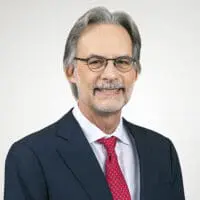Publication
CMS Proposes Changes to Medicare Overpayment Rules To Align With False Claims Act “Knowledge” Standard
By Paul J. Giancola and Claudia E. Stedman
Just before the New Year, the Centers for Medicare and Medicaid Services (CMS) unexpectedly issued a proposed rule to amend existing regulations for Medicare Parts A, B, C, and D that would materially change the obligations of participating entities to report and return overpayments (the Proposed Rule).1
The Proposed Rule would modify the “identified overpayment” definition in the current Medicare regulations to align it with the False Claims Act (FCA) “knowingly” standard. CMS originally proposed this definition in 2012. The Proposed Rule also suggests removing the “exercise of reasonable diligence” language from 42 CFR § 401.305(a)(2), 42 CFR § 422.326(c) and 42 CFR § 423.360(c) and replacing that language with the “knowingly” standard from the FCA.2
Currently, Part A and Part B providers and suppliers3 have time to conduct “reasonable diligence” prior to determining that an overpayment has occurred and to identify the amount of that overpayment. Only after completing such an investigation does the 60-day clock start on returning the overpayment to CMS. The Proposed Rule, however, would require Part A and Part B providers and suppliers to report and return overpayments within 60 days of that provider or supplier having actual knowledge, or being in reckless disregard or deliberate knowledge, of the existence of the overpayment. In short, there will no longer be a sufficient period of time to investigate whether a suspected overpayment has occurred. Instead, a provider or supplier will have “identified” an overpayment if that provider or supplier has actual knowledge of the existence of an overpayment or if that provider or supplier acts in reckless disregard or deliberate ignorance of an overpayment.
There are a few issues presented in the Proposed Rule with regards to the change in definition. First, the Proposed Rule does not explain how Part A or Part B providers or suppliers would practically return an overpayment within 60 days where that provider or supplier knows that the overpayment exists, but does not yet know the overpayment amount. It frequently takes providers or suppliers time to determine the amount of an overpayment. Second, CMS does not elaborate on what it means to be “in reckless disregard or deliberate” ignorance where a provider or supplier received or retained an overpayment.
These changes come on the heels of litigation regarding the Medicare Part C and Part D overpayment rule and reflect the CMS' response to recent District Court decisions. In UnitedHealthcare Ins. Co. v. Azar, the United States District Court for the District of Columbia found that the CMS “reasonable diligence” language in the Part C and Part D rule was outside of the CMS rulemaking authority under the overpayment statute. 330 F.Supp.3d 173, 191 (D.D.C. 2018), rev’d in part on other grounds sub. nom. UnitedHealthcare Ins. Co. v. Becerra, 16 F.4th 867 (D.C. Cir. 2021), cert. denied, 142 S. Ct. 2851 (U.S. June 21, 2022) (No.21-1140). CMS previously provided that “reasonable diligence” in this context would “include proactive compliance activities conducted in good faith by qualified individuals to monitor for the receipt of overpayments.” 330 F.Supp.3d at 190.
Based upon the Proposed Rule’s current drafting, providers and suppliers may be inadvertently placed into a situation where they are at risk for incurring FCA liability for overpayments that they know to exist, but cannot quantify within the 60-day time limit. The Proposed Rule’s existing language may also put providers and suppliers at risk for having constructive knowledge that an overpayment was received or retained without any further guidance as to what “constructive knowledge” really means. It may mean that to avoid FCA liability, a provider or supplier will need to self-disclose an overpayment and inform the agency or the Medicare intermediary that the amount of the overpayment will be provided at a later date.
The overarching goal of the proposed rule is to ensure that the FCA’s “knowingly” standard, and FCA case law interpreting this standard, is applied to any identified overpayment subject to enforcement under the “identified overpayment” regulations. The Proposed Rule was published in the Federal Register on December 27, 2022. Public comments must be submitted by February 13, 2023. Once the final rule goes into effect, Part A and Part B providers and suppliers may want to consider reviewing and potentially updating internal compliance guidelines regarding identifying and returning overpayments to CMS once the final rule is published.
Footnotes
-
Medicare Program; Contract Year 2024 Policy and Technical Changes to the Medicare Advantage Program, Medicare Prescription Drug Benefit Program, Medicare Cost Plan Program, Medicare Parts A, B, C, and D Overpayment Provisions of the Affordable Care Act and Programs of All-Inclusive Care for the Elderly; Health Information Technology Standards and Implementation Specifications, 87 Fed. Reg. 79452 (Dec. 27, 2022)., https://www.govinfo.gov/content/pkg/FR-2022-12-27/pdf/2022-26956.pdf. The Proposed Rule also includes provisions to increase beneficiary protections, especially with regards to plan marketing, access, and health equity.
-
Pursuant to 31 USC § 3729(b)(1)(A), “knowingly” is when a person, with respect to information, “(i) has actual knowledge of the information; (ii) acts in deliberate ignorance of the truth or falsity of the information; or (iii) acts in reckless disregard of the truth or falsity of the information.”
-
Medicare Part A covers inpatient hospital care, skilled nursing facilities, hospice, laboratory services, surgeries, and home health care. Medicare Part B covers services from doctors and other healthcare providers, outpatient care, home health care, durable medical equipment, and preventive services.
About Snell & Wilmer
Founded in 1938, Snell & Wilmer is a full-service business law firm with more than 500 attorneys practicing in 17 locations throughout the United States and in Mexico, including Phoenix and Tucson, Arizona; Los Angeles, Orange County, Palo Alto and San Diego, California; Denver, Colorado; Washington, D.C.; Boise, Idaho; Las Vegas and Reno-Tahoe, Nevada; Albuquerque, New Mexico; Portland, Oregon; Dallas, Texas; Salt Lake City, Utah; Seattle, Washington; and Los Cabos, Mexico. The firm represents clients ranging from large, publicly traded corporations to small businesses, individuals and entrepreneurs. For more information, visit swlaw.com.


